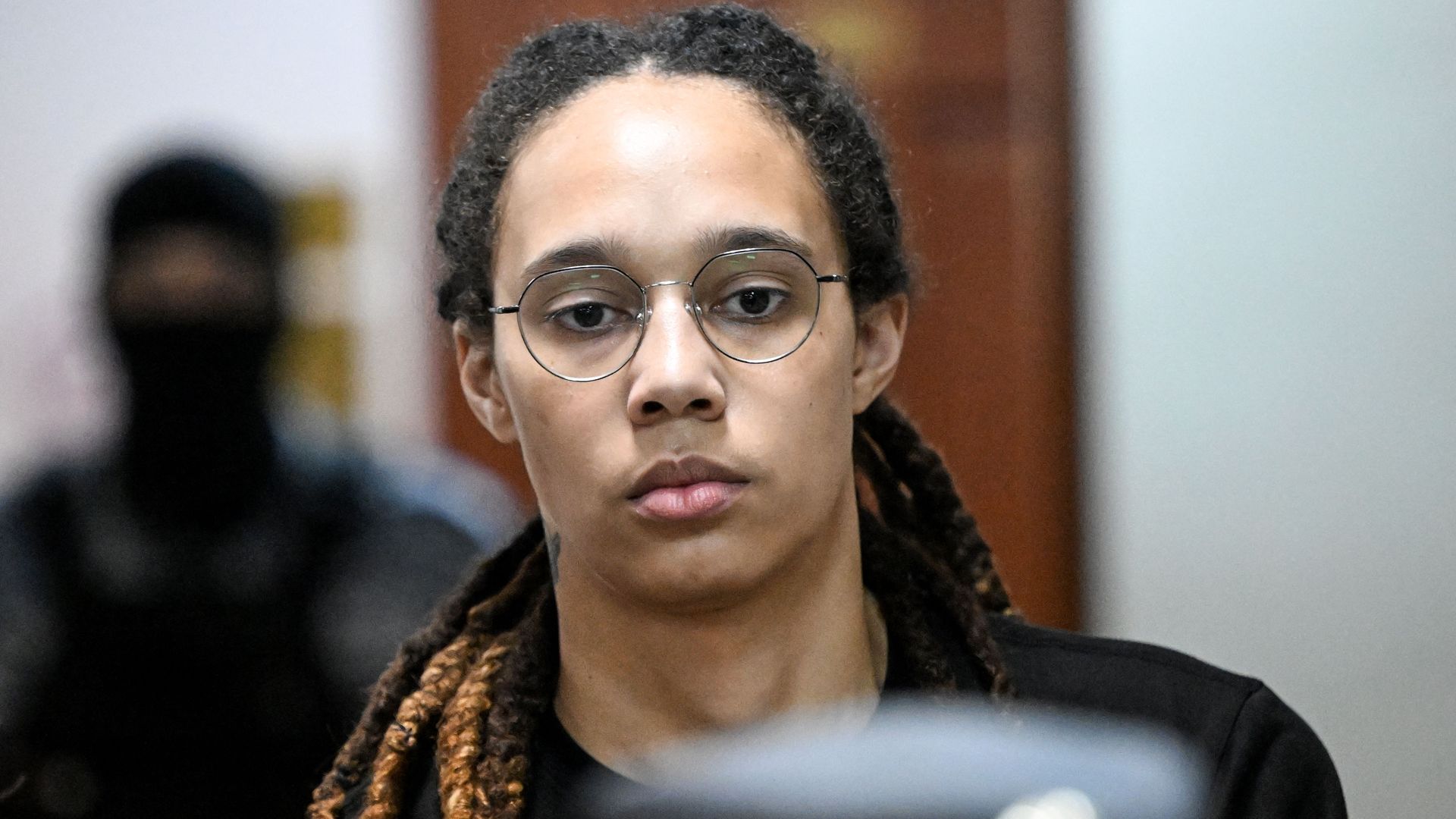U.S. WNBA basketball star Brittney Griner arrives to a hearing at the Khimki Court, outside Moscow, on July 27. Photo: Evgenia Novozhenina/AFP via Getty Images
President Biden made the “painful decision” to swap jailed basketball star Brittney Griner for notorious arms dealer Viktor Bout after determining that Russia was never going to meet his demand that another jailed American, Paul Whelan, also be freed, U.S. officials said on Thursday.
The big picture: Not only did that mean leaving Whelan behind and freeing a man nicknamed “the Merchant of Death,” Biden also had to weigh the risk that other governments might seek to detain Americans to swap them for their own high-value prisoners.
- A senior official acknowledged that risk in a call with reporters, saying “we try to pay, of course, as little a price as possible” but ultimately felt “a moral obligation” to make the deal.
- “It was a choice between bringing home one particular American — Brittney Griner — or bringing home none,” the official said.
Flashback: Upon arriving in Moscow to join a Russian team during the WNBA offseason, Griner was arrested for possession of a small amount of cannabis oil, which she later told a court she'd packed accidentally.
- The arrest immediately sparked concerns that, as the most high-profile American held overseas, Griner could become a political pawn for the Kremlin, and that she could face discrimination in prison for being Black, American and openly gay.
- In July, Secretary of State Tony Blinken announced that he'd spoken to his Russian counterpart Sergey Lavrov for the first time since the invasion of Ukraine to make a “substantial proposal.” It was a swap: Griner and Whelan, who was arrested in 2018 on espionage charges that both he and the U.S. government deny, for Bout.
- Russia demurred. Public optimism faded. Griner was sentenced to nine years, and later moved to a remote penal colony.
Behind the scenes: Through diplomatic and intelligence channels, the U.S. made several alternative proposals to free Griner and Whelan, according to a senior U.S. official. The U.S. also asked other governments to raise the issue with the Russians to help keep the pressure on.
- While the U.S. insists the charges are baseless, the Russians place Whelan in a distinct category as an alleged spy and rejected every proposal that included him, the senior official said.
- That left a potential one-for-one swap. Last week, Biden made the “very painful decision” to proceed with that deal and commute the last seven years of Bout's sentence, White House National Security Council spokesperson John Kirby told reporters.
How it happened: The process of returning Griner to the U.S. and Bout to Russia began early this week, when the basketball star was moved from the prison colony to Moscow, according to the senior administration official.
- Meanwhile, a State Department official traveled to Massachusetts to inform the Whelan family that a deal had been reached, but he was not part of it.
- U.S. officials also informed Whelan himself. He told CNN in a call from prison today that he's “greatly disappointed” that more hasn't been done to free him, and fears he'll never get home.
Griner, meanwhile, was placed on a flight to the United Arab Emirates.
- She was greeted by Biden's special envoy for hostage affairs, Roger Carstens, and crossed paths with Bout on the tarmac before they boarded their next flights — his heading east, hers heading west.
- Then came a call from the Oval Office, where Biden was seated alongside Griner's wife, Cherelle Griner. After the call, Biden stepped to the podium to announce the news.
- “After months of being unjustly detained in Russia, held under intolerable circumstances, Brittney will soon be back in the arms of her loved one and she should have been there all along,” Biden said
Worth noting: The White House declined to comment on whether it was also negotiating for the release of 61-year-old American teacher Marc Fogel, who was imprisoned last year in Russia on marijuana charges.







